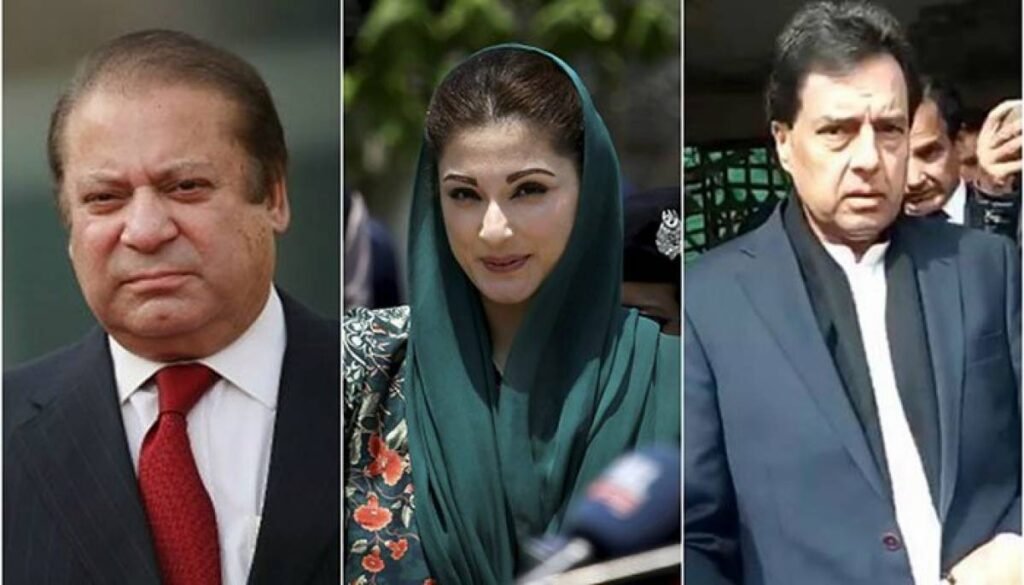After the Islamabad High Court overturned the July 2018 judgement on Thursday, PML-N Vice President Maryam Nawaz and her husband Captain (retd) Safdar were found not guilty in the corruption case involving the Avenfield estates, four years after their conviction.
During today’s hearing, which was presided over by a two-member bench made up of Justices Aamer Farooq and Mohsin Akhtar Kayani, the court heard arguments from both sides.
Justice Farooq noted that the Sharif family claimed to have purchased the houses in 2006 during the hearing today. He said, “Despite their admission, Nawaz is not connected [to the case].
Justice Kayani further noted that the NAB had built its entire case against Maryam on the basis of these papers. “There is no [reference] of Nawaz in the entire case by the NAB,” Justice Farooq said.
According to Justice Farooq, just because a property is registered in a daughter’s name does not mean that the father necessarily owns it.
The Sharif family, according to the NAB prosecutor, had not provided any supporting documentation.
Justice Farooq then questioned why they had even bothered to produce any documentation. They had no duty to do it. The burden of proof fell to the NAB in this situation.
Justice Kayani continued, “They ought to have remained silent. They ought to have remained silent.
Justice Farooq said, “Even then, the prosecution has to show [the case against them] if they admit while in the rostrum that they were the owners of the properties. He claimed that while NAB’s argument might be sound, it was not supported by evidence.
The Reference
The Sharif family was found guilty in the Avenfield apartment case on July 6, a few weeks before the 2018 elections, by the accountability judge of Islamabad, who was acting under the direction of an apex court judge.
The National Accountability Bureau sentenced former prime minister Nawaz Sharif to 10 years in prison for having assets over his known income and one year for refusing to cooperate (NAB). Maryam, meanwhile, received a 7-year sentence for aiding and abetting and a 1-year sentence for refusing to cooperate with the bureau after being deemed “helpful in concealing the properties of her father.”
Safdar received a one-year sentence in prison for his refusal to cooperate with the NAB and for helping Nawaz and Maryam.
In the second week of August 2018, the Sharif family appealed its conviction before the IHC. On September 18 of that same year, the court had suspended their sentences and granted them bail.
Maryam submitted a new application containing “very relevant, straightforward, and clear-cut facts” to the IHC in October of last year in an effort to have the judgement set aside.
The entire process that led to Maryam’s conviction, according to her application, was a “typical example of flagrant abuses of law and political engineering hitherto unheard of in the history of Pakistan.”
She also included a reference to a speech given by former IHC judge Shaukat Aziz Siddiqui on July 21, 2018, at the District Bar Association in Rawalpindi, in which he alleged that the nation’s top intelligence agency was responsible for judicial process manipulation.
The petition quoted a portion from former judge Siddiqui’s speech and stated that “the ISI officers had approached the chief justice urging him to ensure that Nawaz and his daughter should not be released before the elections.”


